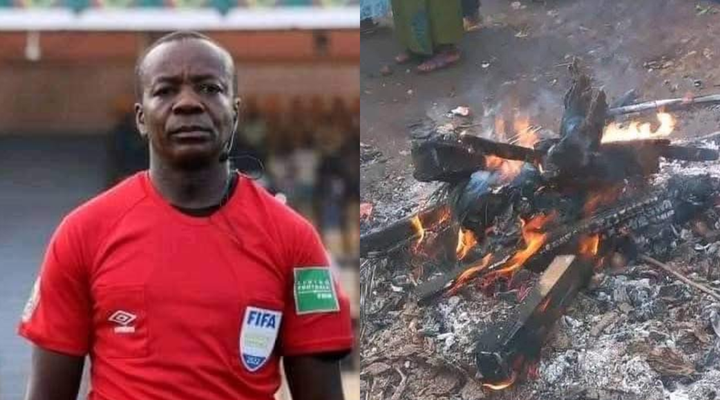Patrick Ngalamulume, a football referee in Bukavu, eastern Democratic Republic of Congo, has been lynched and burned to death by an angry mob following an unproven accusation of theft.
The incident occurred overnight between 5 and 6 May 2025 in the Irambo neighbourhood, where the 36-year-old, popularly known as “Ngalas,” was attacked by locals who accused him without evidence.
Eyewitnesses said the attack happened in full view of residents, but no one was able to intervene in time.
Authorities confirmed that he had no criminal record.
Ngalamulume’s death has sent shockwaves through the football community, where he was known for his professionalism and dedication.
His killing has reignited calls for urgent government action to curb the rise in mob justice.
The eastern part of the country has been plagued by insecurity, with armed groups such as M23 contributing to lawlessness and eroding public trust in state institutions.
Cities like Bukavu and Goma have seen an increase in extrajudicial violence as residents resort to vigilante actions.
Community leaders are demanding an independent investigation, the arrest of those involved, and immediate steps to restore law and order.
The government is yet to release an official statement regarding the killing.
Lawlessness deepens in DRC
The killing of Ngalamulume is just the latest example of how lawlessness and mistrust in the justice system are eroding the social fabric in parts of the country.
As the state struggles to maintain authority, people are increasingly taking matters into their own hands, often with catastrophic consequences. This tragedy has cast a dark shadow over Bukavu, a city already weary from years of insecurity and political neglect.
The memory of a respected sportsman, killed by the very community he served, will remain a stark reminder of what happens when justice collapses and fear rules.
Patrick Ngalamulume’s death leaves a profound void not only in the sporting world but also in the hearts of those who knew him.
His legacy now stands as a call for justice, accountability, and the urgent need to rebuild trust in institutions that are meant to protect all citizens.

